#Mississippi Library Commission
Explore tagged Tumblr posts
Text


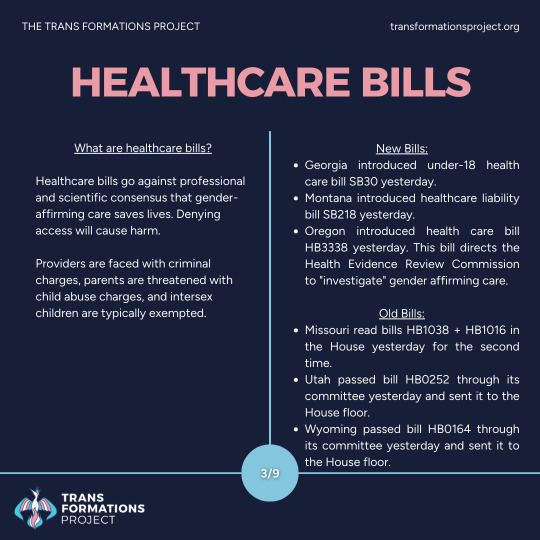

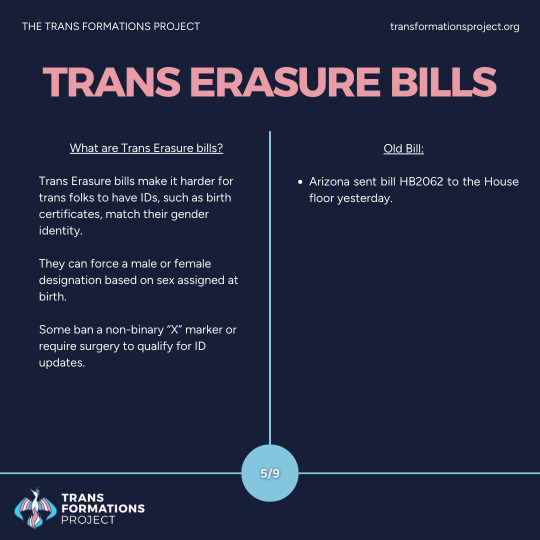


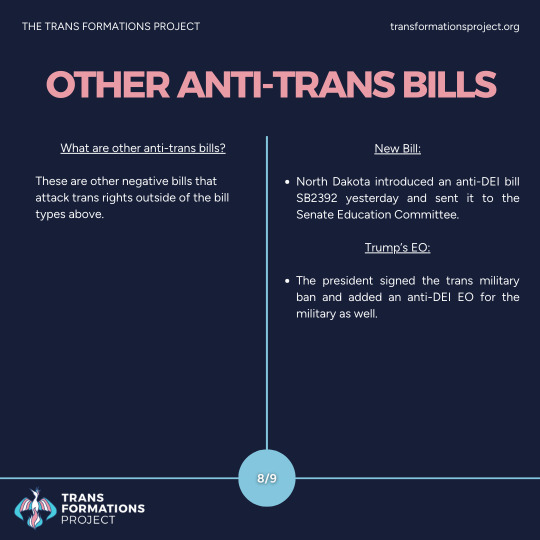

Trans rights are still under attack in the United States. Please visit our website linked below to learn about your state and contact your reps. Here's a thread of today's updates:
Bathroom bills deny access to public restrooms by gender or trans identity.
They increase danger without making anyone any safer and have even prompted attacks on cis and trans people alike. Many national health and anti-sexual assault organizations oppose these bills.
North Dakota held a hearing for bill HB1144 yesterday. No vote was called, and the bill is still in the House Human Services Committee.
Healthcare bills go against professional and scientific consensus that gender-affirming care saves lives. Denying access will cause harm.
Providers are faced with criminal charges, parents are threatened with child abuse charges, and intersex children are typically exempted.
Georgia introduced under-18 health care bill SB30 yesterday.
Montana introduced healthcare liability bill SB218 yesterday.
Oregon introduced health care bill HB3338 yesterday. This bill directs the Health Evidence Review Commission to "investigate" gender affirming care.
Missouri read bills HB1038 + HB1016 in the House yesterday for the second time.
Utah passed bill HB0252 through its committee yesterday and sent it to the House floor.
Wyoming passed bill HB0164 through its committee yesterday and sent it to the House floor.
Educational Censorship and Student Suppression bills force schools to misgender or deadname students, ban instruction on sexual orientation and gender identity, and make schools alert parents if they suspect a child is trans.
They remove life-saving affirmation and support for trans youth.
Kansas introduced school deadnaming/misgendering bill SB76 yesterday.
Mississippi introduced educational censorship bill SB2896 yesterday and sent it to the Senate Education Committee.
Iowa passed bill HF80 through its subcommittee today and sent it to the House Educational Committee.
Iowa sent bill SF8 to the Senate Education Committee yesterday.
Trans Erasure bills create legal definitions of terms like “sex” designed to exclude or erase trans identity and insert them into various laws. This can have many different effects, depending on what laws are affected.
They can force a male or female designation based on sex assigned at birth.
Some target anti-discrimination statutes, legally empowering trans discrimination.
Arizona sent bill HB2062 to the House floor yesterday.
Digital Censorship Bills describe any legislation that potentially targets Queer and Trans media/material for removal.
They typically do this by using vague and broad definitions of "Obscene" or "Harmful to Minors" and then banning such content from being accessible to minors, which often either removes the material entirely or requires age verification methods in order to view.
This includes online censorship bills, library book bans, and other such legislation.
South Dakota sent bill HB1053 to the Senate Judiciary Committee yesterday.
Most sports bills force schools to designate teams by sex assigned at birth.
They are often one-sided and ban trans girls from playing on teams consistent with their gender identity.
Some egregious bills even force invasive genital examinations on student athletes.
Georgia sent bill HB104 to the House Education Committee yesterday.
In other bills that either fit multiple categories or stand on their own, we have:
North Dakota introduced an anti-DEI bill SB2392 yesterday and sent it to the Senate Education Committee.
It's not too late to stop these and other hateful anti-trans bills from passing into law. YOU can go to http://transformationsproject.org/ to learn more and contact your representatives!
#trans formations project#trans#protect trans kids#transgender#activism#lgbt#trans rights#lgbtq#anti trans legislation
17 notes
·
View notes
Text
Voices from the Stacks - The Morris Family
For the Morris family, achievement at Iowa is a family tradition. And luckily for all of us, it’s preserved with care in the Libraries Special Collections and Archives and the Iowa Women’s Archives. In today’s blog, we trace three generations of trailblazers in this impressive family tree.

James B. Morris Sr. - Image courtesy of Joan Liffring-Zug Bourget Collection, State Historical Society of Iowa, Iowa City, Iowa
James B. Morris Sr. launches a legacy
James Morris Sr., left his descendants with large shoes to fill. James Sr. served as the owner and editor of the Bystander, the oldest Black newspaper west of the Mississippi. He also founded the Negro Bar Association, now known as the National Bar Association, along with the Iowa State Conference of the NAACP in 1939 with his wife Georgine. Today, James Sr.’s legacy lives on through the James B. Morris Scholarship Fund, which “provides financial assistance, motivation and internship opportunities for Iowa’s minority students pursuing post-secondary degrees,” and through the accomplishments of the Morris family members who came after him.

Image: James B. Morris Jr. found on Iowa Digital Library
Journeying on with James B. Morris Jr.
James Sr. and Georgine’s son, James B. Morris Jr., graduated from the University of Iowa in 1949. During his undergraduate years, he documented much of his time in Iowa City in a scrapbook filled with photos and charming captions for the various characters in his life. In this scrapbook we can see early photos of James and his then girlfriend, Arlene, who would later become his wife. Though the scrapbook is mostly centered on staged photos of James, Arlene, and their friends, it also contains a few photos of James throughout his service as a captain in the US Army from 1941–1945.

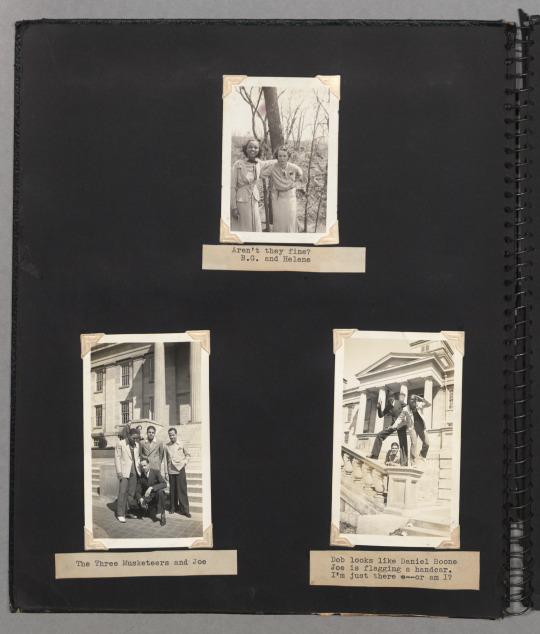
Images: Cover of James B. Morris Scrapbook and photos of friends
After graduation, James returned to Des Moines, joining his father’s law practice and becoming an active civil rights leader. He worked as legal counsel and served as president for the Des Moines branch of the NAACP as well as an officer in the National Conference of Christians and Jews. Heavily engaged with local concerns, James served as a frequent mediator between the Black Panther Party and the Des Moines Police Department—alongside his role helping his father with the Iowa Bystander newspaper. It was with the Bystander that James wrote a column, “Looking Over the Hawkeyes,” which details the experiences of 65 Black men and 10 Black women who attended the University of Iowa but were not allowed to live in the dorms or eat in the university dining rooms. One of those 10 women was James’ wife, Arlene.
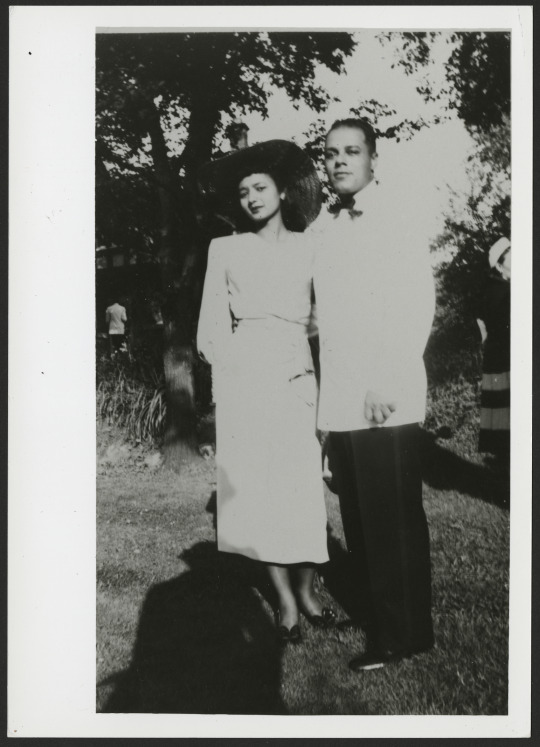

Images: Left, Arlene and James. Right, Arlene for the cover of Eyes magazine found at Iowa Women's Archives
Arlene was very accomplished herself. While in college, Arlene appeared on the cover of the first issue of Eyes magazine, a publication focused on African American life and culture, as well as serving on the magazine’s staff. After graduating from the University of Iowa, Arlene moved on to Drake University in Des Moines to earn a master's degree in psychology. With this qualification, Arlene established herself as the first African American female psychologist to be licensed by the Iowa State Board of Psychology. Heavily engaged with local organizations, Arlene participated in the Know Your Neighborhood Panel, a group consisting of a diverse group of women who traveled around Iowa and to several other states to speak about tolerance among races and religions. Arlene Morris also served on the Iowa Advisory Committee of the United States Civil Rights Commission for more than three years in the 1980s.

Image: Robert V. Morris, 1976 from Iowa Digital Library
Robert V. Morris carries the torch
Robert V. Morris, James and Arlene’s son, continued the legacy of his family with a long list of accomplishments in his communities. Following in his grandfather’s footsteps, Robert would take over the Iowa Bystander from 1979 to 1983, a heavy role for someone who was still enrolled as an undergraduate. But Robert was no stranger to taking on challenges from a young age; in 1979, when he was just three years out of high school, he founded the Iowa City branch of the NAACP, leading it while pursuing his education and his position at the newspaper. After graduating, Robert became president of the Iowa-Nebraska chapter of the NAACP and wrote Black Faces of War: A Legacy of Honor from the American Revolution to Today, a book stemming from his previous television documentary project.
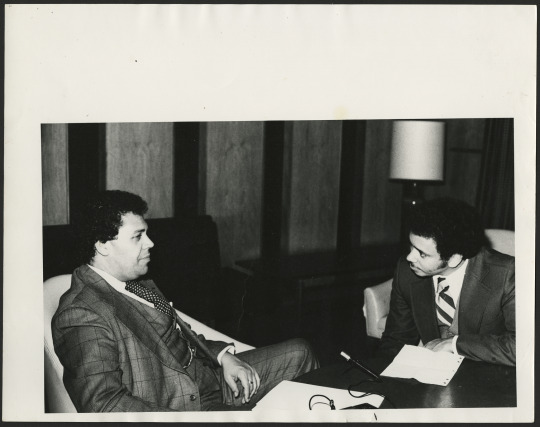
Image: Robert interviewing Atlanta mayor Maynard Jackson, 1979 at the Iowa Memorial Union
The legacy of the Morris family has incredible significance within Iowa City and across the Midwest. Many materials related to the Morris family are held in the University of Iowa Libraries Special Collections and Archives and have been digitized. They can be viewed online in the Morris Family Papers Digital Collection. Arlene Morris’ personal papers, IWA 276, can be found in the Iowa Women’s Archives.
-Kaylee S., Olson Graduate Research Assistant
#uiowa#libraries#special collections#archives#voicesfromthestacks#Morris family#black history#Midwest history
23 notes
·
View notes
Text

Looking Ahead
October 4, 1907
President Roosevelt presents the Inland Waterways Commission with a reason to widen and deepen the Mississippi's channel: the sizable Taft wouldn't be able to take a 'presidential river trip' at its current size.
The caption reads "President Roosevelt - 'You see, gentlemen, if these presidential river trips are to be perpetuated, the channel has simply got to be widened and deepened.'"
Roosevelt was taking a trip down the Mississippi to assess improvements to it. Taft was his likeliest successor.
See Also: Theodore Roosevelt; William Howard Taft
From Hennepin County Library
Original available at: https://digitalcollections.hclib.org/digital/collection/Bart/id/5467/rec/1730
#charles bartholomew#political cartoon#theodore roosevelt#william howard taft#american history#mississippi river#inland waterways commission
3 notes
·
View notes
Text

Infantry Lieutenant Attorney General Earl Burrus Dickerson (June 22, 1891 – September 1, 1986) was a member of President Roosevelt’s Fair Employment Practices Commission (1941-43) and a prominent civil rights attorney in Chicago. He was one of the founders of the Supreme Liberty Life Insurance Company with headquarters in Chicago.
He was born in Canton, Mississippi. He attended the University of Illinois and served during WWI as an infantry lieutenant with the American Expeditionary Forces. He became the first African American to receive a JD from the University of Chicago Law School. He helped found Supreme Liberty Life Insurance Company and became its general counsel. Supreme Life. White insurance companies generally refused to insure African Americans or employ them. Supreme Life filled that void. During the Great Depression when it provided mortgage loans to struggling families. He became the CEO of Supreme Life in (1955-71) when he became chairman of the Board of Directors.
He was elected President of the National Bar Association. He was one of the most successful attorneys in the US during a time when African American lawyers were still barred from law libraries in most Southern states.
His most famous case became a legendary civil rights victory, Hansberry v. Lee, et al., which was argued before SCOTUS. In 1937 Black businessman Carl Hansberry moved into a previously all-white neighborhood on Chicago’s South Side. The Hansberry ruling was, to that point, the most significant challenge of restrictive covenants and opened up segregated housing to African Americans in Chicago and across the nation.
He worked as an attorney for the City of Chicago. He became the first African American appointed as Illinois Assistant Attorney General. He served as a member of the Chicago City Council. He helped found the African American Chapter of the American Legion in Chicago and was a member of Kappa Alpha Psi Fraternity.
He and his wife Kathryn had one daughter. #africanhistory365 #africanexcellence #kappaalphapsi
0 notes
Text
DOGE cuts force libraries to trim services

Libraries across the United States are cutting back on e-books, audiobooks and loan programs after the Trump administration suspended millions of dollars in federal grants as it tries to dissolve the Institute of Museum and Library Services.

Federal judges have issued temporary orders to block the Trump administration from taking any further steps toward gutting the agency.
But the unexpected slashing of grants has delivered a significant blow to many libraries, which are reshuffling budgets and looking at different ways to raise money.
Maine has laid off a fifth of its staff and temporarily closed its state library after not receiving the remainder of its annual funding.
Libraries in Mississippi have indefinitely stopped offering a popular e-book service, and the South Dakota state library has suspended its interlibrary loan program.
E-book and audiobook programs are especially vulnerable to budget cuts, even though those offerings have exploded in popularity since the COVID-19 pandemic.

“I think everyone should know the cost of providing digital sources is too expensive for most libraries,” said Cindy Hohl, president of the American Library Association. “It’s a continuous and growing need.” Caught off guard
President Donald Trump issued an executive order March 14 to dismantle the IMLS before firing nearly all of its employees.
One month later, the Maine State Library announced it was issuing layoff notices for workers funded through an IMLS grant program.
“It came as quite a surprise to all of us,” said Spencer Davis, a library generalist at the Maine State Library who is one of eight employees who were laid off May 8 because of the suspended funding.
In April, California, Washington and Connecticut were the only three states to receive letters stating the remainder of their funding for the year was cancelled, Hohl said. For others, the money hasn’t been distributed yet. The three states all filed formal objections with the IMLS.
Rebecca Wendt, California state library director, said she was never told why California’s funding was terminated while the other remaining states did not receive the same notice.
“We are mystified,” Wendt said.
The agency did not respond to an email seeking comment.
On chopping block
Most libraries are funded by city and county governments, but receive a smaller portion of their budget from their state libraries, which receive federal dollars every year to help pay for summer reading programs, interlibrary loan services and digital books.
Libraries in rural areas rely on federal grants more than those in cities.
Many states use the funding to pay for e-books and audiobooks, which are increasingly popular, and costly, offerings.
In 2023, more than 660 million people globally borrowed e-books, audiobooks and digital magazines, up from 19% in 2022, according to OverDrive, the main distributor of digital content for libraries and schools.
In Mississippi, the state library helped fund its statewide e-book program.
For a few days, Erin Busbea was the bearer of bad news for readers at her Mississippi library: Hoopla, a popular app to check out e-books and audiobooks had been suspended indefinitely in Lowndes and DeSoto counties due to the funding freeze.
“People have been calling and asking, ‘Why can’t I access my books on Hoopla?’” said Busbea, library director of the Columbus-Lowndes Public Library System in Columbus, a majority-Black city northeast of Jackson.
The library system also had to pause parts of its interlibrary loan system allowing readers to borrow books from other states when they aren’t available locally.
“For most libraries that were using federal dollars, they had to curtail those activities,” said Hulen Bivins, the Mississippi Library Commission executive director.
Fighting back
The funding freeze came after the agency’s roughly 70 staff members were placed on administrative leave in March.
Attorneys general in 21 states and the American Library Association have filed lawsuits against the Trump administration for seeking to dismantle the agency.
The institute’s annual budget is below $300 million and distributes less than half of that to state libraries across the country.
In California, the state library was notified that about 20%, or $3 million, of its $15 million grant had been terminated.
“The small library systems are not able to pay for the e-books themselves,” said Wendt, the California state librarian.
In South Dakota, the state’s interlibrary loan program is on hold, according to Nancy Van Der Weide, a spokesperson for the South Dakota Department of Education.
The institute, founded in 1996 by a Republican-controlled Congress, also supports a national library training program named after former first lady Laura Bush that seeks to recruit and train librarians from diverse or underrepresented backgrounds.
A spokesperson for Bush did not return a request seeking comment.
“Library funding is never robust. It’s always a point of discussion. It’s always something you need to advocate for,” said Liz Doucett, library director at Curtis Memorial Library in Brunswick, Maine.
“It’s adding to just general anxiety.”

“This book is banned, but the internet is fair game.”
0 notes
Text
0 notes
Text
Mississippi orders deletion of race and gender databases in state libraries | Mississippi | The Guardian
Library commission says state ‘in dire shape’ and has ‘had a reconsideration of everything with regard to’ Doge — Read on www.theguardian.com/us-news/2025/apr/11/mississippi-libraries-race-gender-databases
0 notes
Text
0 notes
Text





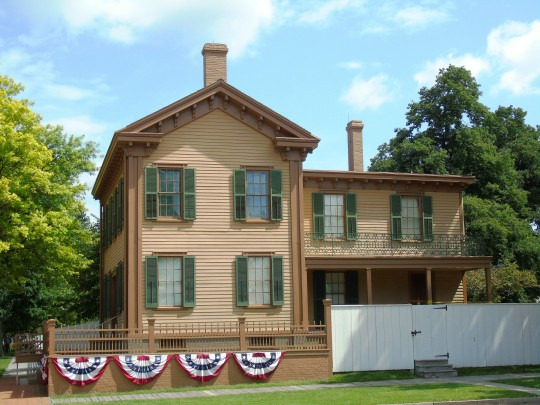


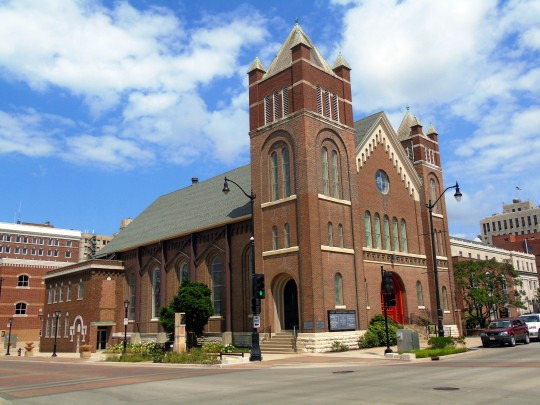



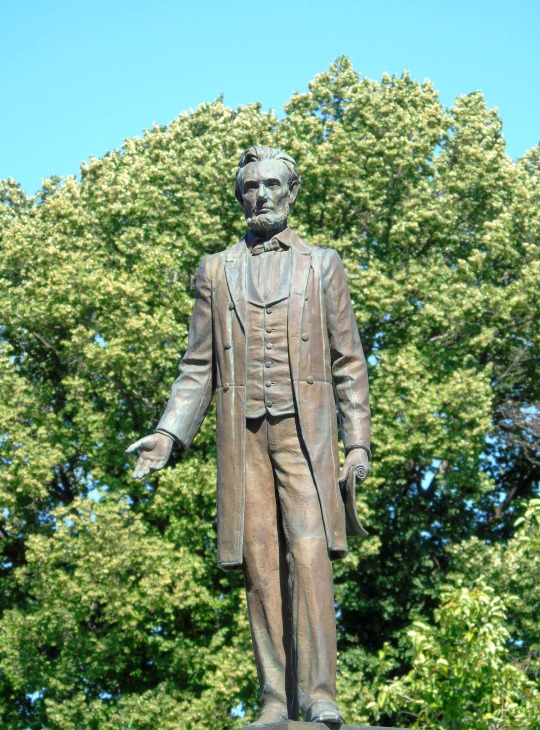
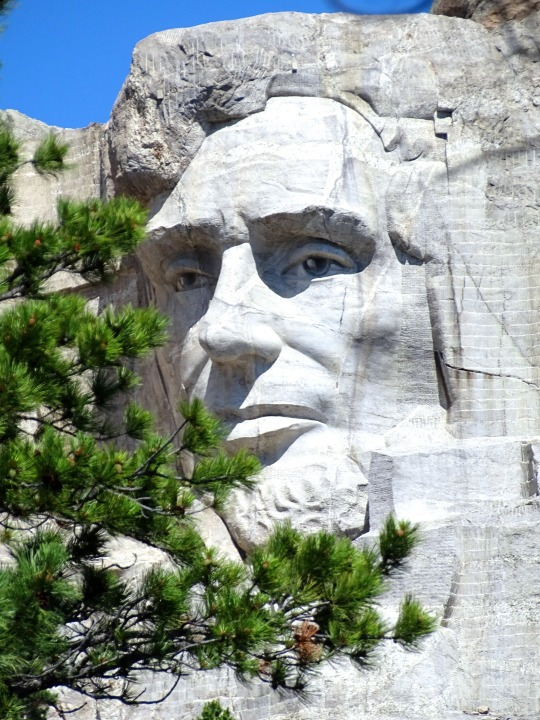




Lincoln's Birthday
Abraham Lincoln, the 16th President of the United States, was born on February 12, 1809. Over the years, he has become known as one of the greatest American presidents of all time. At the time of his death, in 1865, many saw him as a martyr, and it wasn't too long afterward that his birthday began being observed informally. In the mid-1870s, Julius Francis of Buffalo, New York, began honoring Lincoln on his birthday and petitioned Congress to make the day a legal holiday.
But, as of 2019, Lincoln's Birthday is not, nor has it ever been, its own federal holiday. On the state level, a handful of states celebrate Lincoln's birthday on its actual date. In recent years, it has been celebrated as a state holiday in Ohio, Missouri, New York, Illinois, and Connecticut. It is celebrated as such in California as well, but since 2009, it has no longer been a paid holiday there. Some states, Indiana being one example, have officially celebrated Lincoln's birthday, but not on the actual date of his birth. In prior years, more states officially celebrated his birthday; twenty-four states celebrated it in 1940, and ten celebrated it in 1990.
Although Lincoln's Birthday is not celebrated on its own on the federal level, it is often implicitly or explicitly celebrated as part of Washington's Birthday, which is usually called Presidents' Day, taking place on the third Monday in February. In some states, this holiday is known as Washington and Lincoln Day. However, there are other variations of the day; some states specifically celebrate only Washington, and some celebrate Washington and another president, such as Thomas Jefferson.
Besides state observances and informal federal observances, Lincoln's Birthday is celebrated at many places associated with him. Each year, there is a wreath-laying ceremony at the Abraham Lincoln Birthplace National Historical Park in Kentucky. Since its dedication in the early 1920s, there has also been a wreath-laying ceremony at the Lincoln Memorial, which is organized by the Lincoln Birthday National Commemorative Committee and the Military Order of the Loyal Legion of the United States. The reading of the Gettysburg Address is also a part of this event. For his bicentennial, on February 12, 2009, the Abraham Lincoln Bicentennial Commission organized a special event at the Lincoln Memorial. That same day, four new Lincoln pennies were released, with backs that depicted different stages of Lincoln's life. Each year on the day, events are also held at the Abraham Lincoln Presidential Library and Museum in Illinois. The Republican Party holds Lincoln Day dinners around the date because Lincoln was the first Republican president.
Abraham Lincoln was born in a one-room log cabin just south of present-day Hodgenville, Kentucky. When he was two, his family moved to Knob Creek Farm, which is northeast of Hodgenville. In 1816, he moved with his family to Indiana. He did not get much schooling while growing up and often had to work to help support his family, doing things such as farming and splitting rails for fences.
In 1830, his family moved to Macon County, Illinois. He got a job on a boat, hauling freight down the Mississippi River to New Orleans. He then settled in West Salem, Illinois, where he worked as a shopkeeper in a store as well as a postmaster. In 1832, he was a captain in the Black Hawk War and ran for a spot in the Illinois state legislature, which he lost. However, he ran again in 1834 and was successful. As a member of the Whig Party, he was influenced by other Whigs such as Henry Clay and Daniel Webster. Some policy positions he held at the time were in opposition to slavery's spread to the territories, and a goal of expanding the United States with a focus on commerce and cities.
Lincoln decided to teach himself law and passed the bar in 1836. Shortly thereafter, he moved to Springfield, a few years before it became the state's capital. He married Mary Todd in 1842; they had four sons together, although only one would live into adulthood. Lincoln was elected to the U.S. House of Representatives in 1846, but pledging to serve only one term, he returned to Springfield in 1849. His opposition to the Mexican-American War is the most remembered element of his term.
Politics were in Lincoln's blood, and he decided to return to them in 1854. That year, Democrat Stephen Douglas had helped get the Kansas-Nebraska Act passed, which said there should be popular sovereignty when it came to slavery in the territories, meaning that voters should be able to decide for themselves if slavery should be allowed in them. On October 16, 1854, in Peoria, Illinois, Lincoln debated Douglas about the act. During the debate, he spoke against slavery and said it was incongruous with the Declaration of Independence. That same year, he joined the recently formed Republican Party, a party that was created in large part on the belief that slavery should not expand into the territories.
In 1858, Lincoln ran against Stephen Douglas for a U.S. Senate seat in Illinois. In June, he gave his house divided speech, which said the country couldn't go on existing half slave and half free. Lincoln lost the race but gained national recognition, in part because of the debates he had with Douglas.
The Republicans nominated Lincoln as their candidate for president in the 1860 election. It was a four-way race: Stephen Douglas was the nominee of northern Democrats, John C. Breckenridge was the nominee of southern Democrats, and John Bell was the nominee of the Constitutional Union Party. Breckenridge and Bell split the southern votes, and Lincoln won most of the north. He won the electoral vote count, and thus the presidency. By the time he had taken the oath of office in March 1861, seven states had already seceded from the Union; the Civil War began the following month.
The Civil War engulfed Lincoln's presidency, but he proved to be an adept war leader. After George McClellan failed to pursue the Confederate Army after the Union victory at Antietam in September 1862, Lincoln removed him of his position of Commanding General. Lincoln also issued the Emancipation Proclamation after Antietam, which went into effect on January 1, 1863, freeing slaves in the southern states (slaves in the border states loyal to the Union were not freed). The emancipation laid the groundwork for slaves to be freed everywhere—the Thirteenth Amendment went into effect in 1865, after Lincoln's death.
In November 1863, Lincoln delivered the Gettysburg Address at a dedication of the national cemetery at Gettysburg. It became one of the most famous speeches in American history. Although Lincoln has been lauded for fulfilling the commander-in-chief role, he did so not completely without controversy, as he suspended habeas corpus.
In 1864, Lincoln faced the general he had relieved, George McClellan, in his bid for reelection. He prevailed, and at his second inaugural he spoke of the end of the war, and the need for a conciliatory reconstruction "with malice toward none; with charity for all." On April 9, 1865, Confederate commander Robert E. Lee surrendered to Union Commanding General Ulysses S. Grant at Appomattox Court House. Two days later, Lincoln gave a speech on the White House lawn.
On April 14, which happened to be Good Friday, President Lincoln was shot in the back of the head by John Wilkes Booth while at Ford's Theatre. He died early the next morning at a boarding house across from the theatre. Today we remember his remarkable life and his contributions to the United States at such a difficult time in its history.
How to Observe Lincoln's Birthday
The following are some ways to celebrate Lincoln's Birthday:
Visit the Abraham Lincoln Birthplace National Historical Park. This encompasses both his birthplace south of Hodgenville, as well as Knob Creek Farm, where he lived next. A wreath-laying ceremony takes place at the park.
Stop at the Lincoln Museum in downtown Hodgenville as well as the nearby Abraham Lincoln Statue.
Stop at other places along the Kentucky Lincoln Heritage Trail.
Attend the wreath-laying ceremony at the Lincoln Memorial.
Visit the Abraham Lincoln Presidential Library and Museum and The Lincoln Tomb in Springfield, Illinois.
Stop at the Lincoln Boyhood National Memorial in Indiana or at the Abraham Lincoln Library and Museum in Tennessee.
Go to Ford's Theatre.
Read a book about Lincoln.
Read some of Lincoln's own writings and speeches.
Source
#Lincoln's Birthday#Abraham Lincoln#born#12 February 1809#anniversary#Lincoln Memorial#Henry Hering#Lincoln Home#Lincoln Home National Historic Site#Seated Lincoln#Augustus Saint Gaudens#First Presbyterian Church of Springfield#Lincoln Family Church#statue#art#Washington DC.#Springfield#Indianapolis#Chicago#USA#photography#history#travel#original photography#vacation#tourist attraction#landmark#cityscape#architecture#US history
0 notes
Text
My Reading Itinerary Monday! – Week #32 – 2024

Welcome to My Reading Itinerary Monday! Where are your books taking you this week? I will be traveling to Connecticut, South Carolina, and Oregon!! Here’s what I read and what I have planned for this week. Escapes Completed Requiem for a Mouse (Cat in the Stacks Mystery) by Miranda James Release Date - June 25, 2024 Setting - Mississippi My Review will be up tomorrow! There's No Murder Like Show Murder (Backstage Mystery) by M. S. Greene Release Date - July 23, 2024 Setting - Connecticut I will feature this book this week for Cozy Wednesday! The Tarnished Son by Elizabeth McKenna Release Date - July 23, 2024 Setting - Wisconsin The Great Escapes Tour stops here Thursday! Scheduled Escapes Booked on Murder (A Haunted Library Mystery) by Allison Brook Release Date - August 6, 2024 Setting - Connecticut The Great Escapes Book Tour stops here next Tuesday! Peach Tea Smash (A Tea Shop Mystery) by Laura Childs Release Date - August 6, 2024 Setting - South Carolina The Great Escapes Tour stops here next week for Cozy Wednesday! Sticks and Scones: A Bakeshop Mystery by Ellie Alexander Release Date - August 20, 2024 Setting - Oregon For Review Future Escapes August 4 - 10, 2024 Please Share Your Reading Itinerary in the Comments below! Happy Reading!! Your Escape Into A Good Book Travel Agent This post contains affiliate links. If you make a purchase using my links, I will receive a small commission from the sale at no cost to you. Thank you for supporting Escape With Dollycas. Read the full article
0 notes
Text
Alcorn to host West African music program by Vicksburg native Jerry Jenkins

Jerry Jenkins playing the drums
-------------------------
Natchez, MS, USA / ListenUpYall.com Roscoe Barnes III Aug 17, 2023 | 7:59 AM
LORMAN, Miss. - Jerry Jenkins and his drums will be featured in a program on West African music at Alcorn State University.
Jenkins will offer a historical look at African music and give demonstrations of how the music is played. He also will discuss its value as well as its impact on today’s culture in Southern Mississippi.
Jenkins’ presentation is titled, “A Look at Mande’ (West African) Culture through Traditional Music.” It will be held at 1 p.m. on Sept. 12, in Dumas Hall, Room 107, on the Lorman Campus of Alcorn State University.
“My lecture will focus on the music of Pre-Africa and what it was like,” Jenkins said. “We will look at the music and the people of that time period. Today, we separate our artists from the community. But what are the benefits of bringing them back together?”
Jenkins said he will engage the crowd as he often does in other presentations. He said he will bring extra drums for this purpose.

Jerry Jenkins teaching
The event is hosted by the Southwest Mississippi Center for Culture & Learning and Alcorn State University School of Arts and Sciences. Teresa Busby, the center’s executive director, said the program is the first in the center’s Coffee & Culture series for fall 2023. The presentation is free to the public.
“We are delighted to host Mr. Jenkins at Alcorn State University,” Busby said. “His interactive presentation will delve into the influence of West Africa on American culture. He uses music to tell an important story and to engage his audiences.”
Jenkins is originally from Chicago. He grew up in Vicksburg and now lives in Jackson. His work as a musician and educator has taken him across the state and to cities outside of Mississippi.
In February 2022, Jenkins played the drums and portrayed King Sori in a play on Prince Abdul Rahman Ibrahim held at the Natchez Museum of African American History and Culture. The play was titled, “Isabella and the Prince: ‘Overcoming Struggles Through Courage & Faith.’” It featured local historian Jeremy Houston as the Prince and Shella Adams, an actual descendant of Ibrahim, as Isabella.
During his performance with the drums, Jenkins moved throughout the room and engaged the audience by having several people play the drums along with him.
Jenkins has given presentations at the Two Museums in Jackson and Juneteenth events in Vicksburg. He said he’s also performed for the Jackson-George Regional Library System on the coast. In addition to his performance at the museum, Jenkins also has given presentations at Concord Quarters, working with Debbie Cosey, the property’s co-owner.
Jenkins has been a lifelong student of African music. He is a member of the Mississippi Humanities Council’s Speakers Bureau. He also is listed as a performance artist on the Mississippi Arts Commission’s Artist Roster.
According to the commission’s website, Jenkins “provides engaging programming structured around West African stories, dramas and Djembe ensemble music.”
Jenkins teaches various levels of advanced techniques in Djembe drumming and Mande culture through music. “His unique approach to interacting with the audience creates a deeper and more meaningful experience,” the website states. For more information on Jenkins’ presentation, call 601-877-6551. To request disability-related accommodations contact the Disability Coordinator at least five days in advance at 601-877-6460 (office) or email at [email protected]
Website: https://listenupyall.com/2023/08/17/alcorn-to-host-west-african-music-program-by-vicksburg-native-jerry-jenkins/
1 note
·
View note
Text

Mississippi Library Commission: Tree mural on the library wall in Clay County. http://ow.ly/picy50ESD6V
#Mississippi Library Commission#art#2000s#mural#painting#library#clay county#mississippi#digitization#msdiglib
3 notes
·
View notes
Text

Robert Robinson Taylor (June 8, 1868 – December 13, 1942) was an architect; the first accredited African American architect. He was the first African American student enrolled at MIT. He designed many of the buildings on the campus of Tuskegee University, and he served as second-in-command to its founder and first President, Booker T. Washington.
He returned to Cleveland to work on his own and for the architectural firm of Charles W. Hopkinson. He was an architect and the director of “mechanical industries”. To develop a sound curriculum at Tuskegee, both Washington and he drew inspiration from MIT as a model. His admiration for MIT as a model for Tuskegee’s development was conveyed in a speech that he delivered at MIT. He cited examples to Congress in a paper to illustrate the kinds of rigorous ideas, approaches, and methods that Tuskegee had adopted from MIT and successfully applied within the context of an African American educational institution.
He designed buildings that were not at Tuskegee. These include Carnegie libraries at Wiley College and Livingstone College. With his partner, the African American architect Louis H. Persley, he did large buildings at Selma University and the Colored Masonic Temple, which is an office building and entertainment venue, in Birmingham. He served for a period as VP of Tuskegee. Under the joint sponsorship of the Phelps-Stokes Fund, the Liberian government, and Firestone Rubber, he went to Kakata, Liberia to lay out architectural plans and devise a program in industrial training for the proposed Booker Washington Institute – “the Tuskegee of Africa.” He served on the Mississippi Valley Flood Relief Commission, appointed by President Herbert Hoover, and was chairman of the Tuskegee chapter of the American Red Cross. #africanhistory365 #africanexcellence
1 note
·
View note
Text
State Ship Series: USS MISSISSIPPI
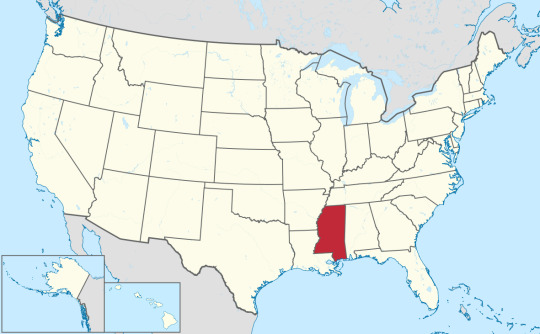
There have been four ships commissioned named after the state of Mississippi in the US Navy. The state was admitted into the United States on December 10, 1817.
1. USS MISSISSIPPI (BB-23)


Mississippi class, predreadnought battleship, in commission from 1908 to 1914.
Class: Type: Ordered: Laid down: Christened/Launched: Commissioned: Nicknamed: Motto: Decommissioned: Fate:
She was found to have poor sea keeping qualities due to her small size in the Atlantic Ocean. She was sold to the Greek Navy in 1914, who renamed her Kilkis. The Greek Navy found Kilkis' design performed better in the relative calm waters of the Meditation Sea. She fought in WWI, Allied intervention in the Russian Civil War and the Greco-Turkish War. Her sister ship, Lemnos (exUSS Idaho (BB-24)) and her served until 1932, when they become barrack ships. When the Nazis invaded Greece, the Luftwaffe bombed the two in Salamis Naval Base and sank in the shallow waters. They were raised and scrapped after the war.
2. USS MISSISSIPPI (BB-41/AG-128)


New Mexico Class, dreadnought battleship, in commission from 1917 to 1956.
Class: Type: Ordered: Laid down: Christened/Launched: Commissioned: Nicknamed: Motto: Decommissioned: Fate:
She was the only New Mexico Class battleship to be fitted with 5 inch guns on the casemates, but were quickly removed and the ports were blanked over, leaving the 5 inch guns on the main deck as the only remaining. All future battleships dropped the casemates on the gun deck. Along with her sisters, she was modernized in the mid 1930's and were the most modern dreadnought battleships at the beginning of WWII. She fought in the liberation of the Aleutian Islands, Gilbert and Marshall Islands campaign, Battle of Peleliu, Battle of Leyte Gulf, Battle of Surigao Strait, invasion of Okinawa during WWII. After the war, she took over training duty from USS Wyoming (AG-17) and had her 14 inch turrets removed so AA guns could be installed. In 1952, the RIM-2 Terrier missile and the AUM-N-2 Petrel missile were installed for training. She was scrapped in 1956.
3. USS MISSISSIPPI (DLGN/CGN-40)


Virginia class, nuclear powered guided missile cruiser, reclassified as a Guided Missile Cruiser before launch, in commission from 1978 to 1997.
Class: Virginia
Type:
Ordered:
Laid down:
Christened/Launched: Commissioned:
Nicknamed: Brand X
Motto:
Decommissioned:
Fate:
4. USS MISSISSIPPI (SSN-782)


Virginia Class Block II, in commission from 2012 to present.
Class: Type: Ordered: Laid down: Christened/Launched: Commissioned: Nicknamed: Motto: Decommissioned: Fate:
There was one ship commissioned named after the Mississippi river.
USS MISSISSIPPI (1841)

Class: Type: Ordered: Laid down: Christened/Launched: Commissioned: Nicknamed: Motto: Decommissioned: Fate:
Mississippi class, 10 gun sidewheel steam frigate, in commission from 1841 to 1863. Fought in the Mexican–American War and the American Civil War. She pushed the ram, CSS Manassas onto shore and hit her with two full broadsides. She was abandoned and destroyed to prevent capture when she ran aground in 1863.
source, source
Norfolk Public Library: smc_mss0000187_000601_019
U.S. Naval History and Heritage Command: NH 86366
330-CFD-DN-SC-85-01551
NARA: 513004
#Mississippi#State Ship Series#USS Mississippi#USS Mississippi (BB-23)#Mississippi Class#Predreadnought#USS Mississippi (BB-41)#USS Mississippi (AG-128)#New Mexico Class#dreadnought#battleship#USS Mississippi (CGN-40)#Virginia Class#Nuclear Powered Guided Missile Cruiser#guided missile cruiser#cruiser#USS Mississippi (SSN-782)#Nuclear Powered Attack Submarine#Attack Submarine#Submarine#united states navy#us navy#navy#usn#u.s. navy#USS Mississippi (1841)#sidewheel steam frigate#Frigate#my post#December
9 notes
·
View notes
Photo


Emancipation Proclamation (Soldier’s Home Facsimile Edition)
“And by virtue of the power, and for the purpose aforesaid, I do order and declare that all persons held as slaves within said designated States, and parts of States, are, and henceforward shall be free…”
Series: Collected Manuscripts and Papers, ca. 1789 - 1918
Record Group 59: General Records of the Department of State, 1763 - 2002
Transcription:
FACSIMILE OF THE Emancipation Proclamation
Executive Mansion
Washington, Oct 26. 1863
Ladies having in charge
The north Western Fair
For the Sanitary Commission
Chicago, Illinois
According to the request made in your behalf, the original draft of the Emancipation Proclamation is herewith inclosed. The formal word, at the top, and the conclusion, except the signature, you perceive are not in my hand-writing. They were written at the State Department by whom I know not. The printed part was cut from a copy of the preliminary proclamation, and pasted on merely to save writing.
I had some desire to retain the paper; but if it shall contribute to the relief or comfort of the soldiers, that will be better.
Your Obt Servant
A.Lincoln
The Soldiers' Home.
LET LOYAL HEARTS
AND WILLING HANDS
Cherish, Comfort and Care,
for my
WOUNDED HEROES.
By the President of the United States of America: A Proclamation.
Whereas, on the twentysecond day of September in the year of our Lord one thousand eight hundred and sixty two, a proclamation was issued by the President of the United States, containing, among other things, the following, to wit:
That on the first day of January, in the year of our Lord one thousand eight hundred and sixty-three, all persons held as slaves within any State or designated part of a State, the people whereof shall then be in rebellion against the United States, shell be then, thenceforward, and forever free; and the Executive Government of the United States, including military and naval authority thereof, will recognize and maintain the freedom of such persons, and will do no act or acts to repress such persons, or any of them in any efforts they may make for their actual freedom.
That the Executive will, on the first day of January aforesaid, by proclamation, designate the States and parts of States, if any, in which the people thereof, respectively, shall then be in rebellion against the United States; and the fact that any State, or the people thereof, shall on that day be, in good faith, represented in the Congress of the United States by members chosen thereto at elections wherein a majority of the qualified voters of such State shall have participated, shall, in the absence of strong countervailing testimony, be deemed conclusive evidence that such State, and the people thereof, are not then in rebellion against the United States
Now, therefore I, Abraham Lincoln, President of the United States, by virtue of the power in me vested as Commander-in-Chief, of the Army and Navy of the United States in time of actual armed rebellion against authority and government of the United States, and as a fit and necessary war measure for suppressing said rebellion, do, or on this first day of January, in the year of our Lord one thousand eight hundred and sixty three, and in accordance with my purpose so to do publicly proclaimed for the full period of one hundred days, from the day first above mentioned, order and designate as the states and parts of states wherein the people thereof respectively, are this day in rebellion against the United States, the following, to wit:
Arkansas, Texas, Louisiana, (except the Parishes of St. Bernard, Plaquemines, Jefferson, St. John, St. Charles, St. James, Ascension, Assumption, Terrebonne, Lafourche, St. Mary, St. Martins, and Orleans, including the City of New Orleans) Mississippi, Alabama, Florida, Georgia, South Carolina, North Carolina and Virginia, (except the forty eight counties designated as West Virginia, and also the counties of Berkley, Accomac, Northampton, Elizabeth City, York, Princess Anne, and Norfolk, including the cities of Norfolk & Portsmouth; and which excepted parts are, for the present, left precisely as if this proclamation was not issued.
And by virtue of the power, and for the purpose aforesaid, I do order and declare that all persons held as slaves within said designated States, and parts of States, are, and henceforward shall be free; and that the Executive government of the United States, including the military and naval authorities thereof, will recognize and maintain the freedom of said persons.
And I hereby enjoin upon the people so declared to be free to abstain from all violence, unless in necessary self-defence; and I recommend to them that, in all cases when allowed, they labor faithfully for reasonable wages.
And I further declare and make known, that such persons of suitable condition, will be received into the armed services of the United States to garrison forts, positions, stations, and other places, and to man vessels of all sorts in said service.
And upon this act, sincerely believed to be an act of justice, warranted by the Constitution, upon military necessity, I invoke the considerate judgement of mankind, and the gracious favor of Almighty God.
In witness whereof, I have hereunto set my hand and caused the seal of the United States to be affixed.
Done at the city of Washington, this first day of January, in the year of our Lord one thousand eight hundred and sixty three, and of the Independence of the United States of America the eighty-seventh.
{L. S. }
[signature] Abraham Lincoln
By the President;
William H Seward
Secretary of State
[stamp] LIBRARY NOV 8 1901 DEPT OF STATE.
EVERY GENUINE COPY HAS THE PROCLAMATION SEAL ATTACHED IMMEDIATELY HEREUNDER.
Hon [illegible] A. Acker with the compliments of Charles Page Bryany has purchased this Facsimile, contributing thereby to the comfort and relief of Sick and Disabled Soldiers.
I HEREBY CERTIFY THAT THE ABOVE IS AN EXACT FAC-SIMILE OF THE ORIGINAL MANUSCRIPT OF THE EMANCIPATION PROCLAMATION, PURCHASED BY ME FROM THE NORTH-WESTERN FAIR. THIS PUBLICATION IS UNDERTAKEN IN BEHALF OF THE GENERAL TREASURY OF THE UNITED STATES SANITARY COMMISSION, AND ALSO TO CREATE A FUND FOR THE ERECTION AND MAINTENANCE OF A PERMANENT HOME FOR OUR SICK AND DISABLED SOLDIERS. PURCHASERS OF THIS FAC-SIMILE OF THE PROCLAMATION OF FREEDOM, WILL THUS INVEST THAT IMMORTAL INSTRUMENT WITH A NEW INTEREST, AS CONTRIBUTING TO NOBLE INSTITUTIONS WHICH SHALL PROVE A JUST TRIBUTE OF A NATION'S GRATITUDE TO HER PATRIOT SONS.
BY AN ARRANGEMENT WITH HON. T.B. BRYAN, THE U.S. SANITARY COMMISSION DERIVES A LIBERAL SHARE OF THE PROFITS FROM THE SALE OF EACH OF THIS FAC-SIMILE.
Published and lithographed by Ed Mendel, Chicago.
[signature] Henry W. Bellows President U.S. Sanitary Commission
[signature] Thos. B. Bryan President of the Soldier's Home, Chicago, Illinois.
Entered according to Act of Congress in the year 1863 by Thos B. Bryan, in the Clerks Office of the United States, for the Northern District of Illinois
[stamp] BUREAU OF ROLLS & LIBRARIES NOV 8 1981 DEPARTMENT OF STATE
86 notes
·
View notes
Text
William H. Hastie
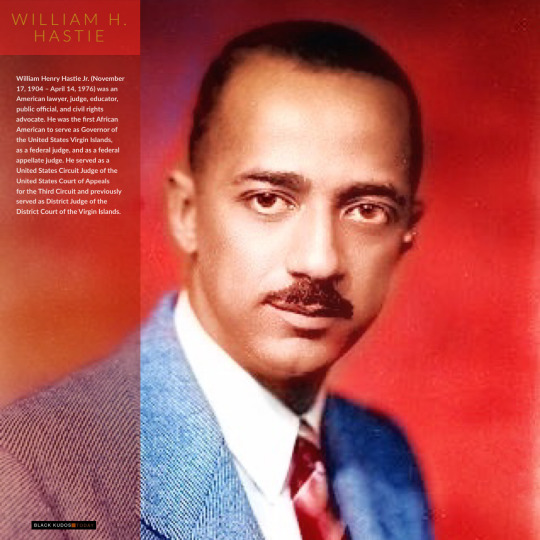
William Henry Hastie Jr. (November 17, 1904 – April 14, 1976) was an American lawyer, judge, educator, public official, and civil rights advocate. He was the first African American to serve as Governor of the United States Virgin Islands, as a federal judge, and as a federal appellate judge. He served as a United States Circuit Judge of the United States Court of Appeals for the Third Circuit and previously served as District Judge of the District Court of the Virgin Islands.
Early life
Hastie was born in Knoxville, Tennessee, the son of William Henry Hastie, Sr. and Roberta Childs. His maternal ancestors were African American and Native American, but European American is also a strong possible mix. Family tradition held that one female ancestor was a Malagasy princess. He graduated from Dunbar High School, a top academic school for black students. Hastie attended Amherst College in Massachusetts, where he graduated first in his class, magna cum laude, and Phi Beta Kappa, receiving an Artium Baccalaureus degree. He received a Bachelor of Laws from Harvard Law School in 1930, followed by a Doctor of Juridical Science from the same institution in 1933.
Legal career
Hastie entered the private practice of law in Washington, D.C. from 1930 to 1933. From 1933 to 1937 he served as assistant solicitor for the United States Department of the Interior, advising the agency on racial issues. He had worked with Charles Hamilton Houston, former dean of the Howard University Law School, on setting up a joint law practice.
In 1937, President Franklin D. Roosevelt appointed Hastie to the District Court of the Virgin Islands, making Hastie the first African-American federal judge. This was a controversial action; Democratic United States Senator William H. King of Utah, the Chairman of the United States Senate Committee on the Judiciary called Hastie's appointment a "blunder."
In 1939, Hastie resigned from the court to become the Dean of the Howard University School of Law, where he had previously taught. During his tenure as a legal professor at Howard University, Hastie had become a member of Omega Psi Phi fraternity. One of his students was Thurgood Marshall, who led the Legal Defense Fund for the NAACP and was appointed as a United States Supreme Court Justice.
Hastie served as a co-lead lawyer with Thurgood Marshall in the voting rights case of Smith v. Allwright, 321 U.S. 649 (1944), in which the Supreme Court ruled against white primaries. One of Houston's sons became a name partner at their law firm.
World War II
During World War II, Hastie worked as a civilian aide to the United States Secretary of War Henry Stimson from 1940 to 1942. He vigorously advocated the equal treatment of African Americans in the United States Army and their unrestricted use in the war effort.
On January 15, 1943, Hastie resigned his position in protest against racially segregated training facilities in the United States Army Air Forces, inadequate training for African-American pilots, and the unequal distribution of assignments between whites and non-whites. That same year, he received the Spingarn Medal from the NAACP, both for his lifetime achievements and in recognition of this protest action.
In 1946, President Harry S. Truman appointed Hastie as Territorial Governor of the United States Virgin Islands. He was the first African American to hold this position. Hastie served as governor from 1946 to 1949.
Federal judicial service
Hastie received a recess appointment from President Harry S. Truman on October 21, 1949, to the United States Court of Appeals for the Third Circuit, to a new seat authorized by 63 Stat. 493, becoming the first African-American federal appellate judge. He was nominated to the same position by President Truman on January 5, 1950. He was confirmed by the United States Senate on July 19, 1950, and received his commission on July 22, 1950. He served as Chief officer as a member of the Judicial Conference of the United States from 1968 to 1971. He assumed senior status on May 31, 1971. He was a Judge of the Temporary Emergency Court of Appeals from 1972 to 1976. His service terminated on April 14, 1976, due to his death in Philadelphia, Pennsylvania, while playing golf.
Supreme Court consideration
As the first African American on the Federal bench, Hastie was considered as a possible candidate to be the first African-American Justice of the Supreme Court. In an interview with Robert Penn Warren for the book Who Speaks for the Negro?, Hastie commented that, as a judge, he had not been able to be "out in the hustings, and to personally sample grassroots reaction," but that, in order for the civil rights movement to succeed, class and race must both be considered.
In 1962, President John F. Kennedy considered appointing Hastie to succeed retiring Justice Charles Whittaker. But due to political calculations he did not. He believed that an African-American appointee would have faced fierce opposition in the United States Senate from Southerners such as James Eastland (D-Mississippi), chairman of the Judiciary Committee. Conversely, on issues other than civil rights, Hastie was considered relatively moderate, and Chief Justice Earl Warren reportedly opined that Hastie would be too conservative as a justice. Kennedy appointed Byron White instead.
Kennedy said that he expected to make several more appointments to the Supreme Court in his presidency and he intended to appoint Hastie to the Court at a later date.
Legacy
The Third Circuit Library in Philadelphia is named in Hastie's honor. In addition, an urban natural area in Knoxville, Tennessee is named in his honor.
In terms of African-American history, Hastie developed from a youthful radical to a scholarly, calm, almost aloof jurist. He said the judge always ought to be in the middle, for his basic responsibility "is to maintain neutrality while giving the best objective judgment of the contest between adversaries." As a scion of an elite black family, he reflected its integrationist viewpoint. He said, "The Negro lawyer has played and continues to play, a very important role in the American Negro's struggle for equality." A temptation to activism lurked just below his calm surface, as when he demonstrated against Jim Crow before it was fashionable to do that. When he resigned as the top aide on racial matters to the War Department in 1943, he said it was caused by "reactionary policies and discriminatory practices in the Army and Air Forces."
4 notes
·
View notes